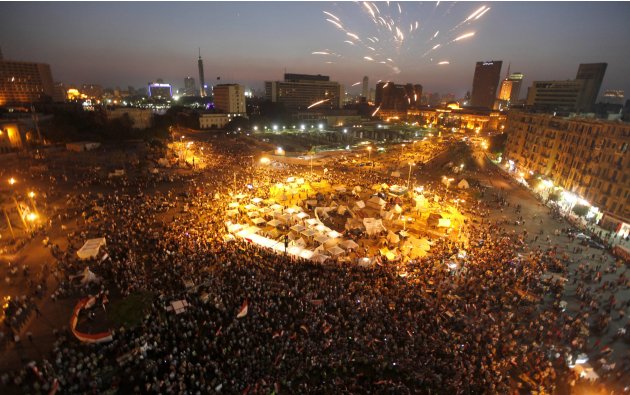Mrs Spinoza and I have just started keeping bees. And by
just, I mean a box of ten thousand and a queen was delivered yesterday afternoon and are happily flying off all over collecting nectar and pollen as I type. Which got me to thinking about the various claims made about bees and honey in the Qur'an, and how determined a certain sort of Muslim - like my convert friend - is to maintain that the holy book of Islam was the first to tell mankind about the wonderful properties of honey and how this is yet another example of miraculous knowledge imparted to us by Allah via his prophet.
"Your Lord revealed to the bees: "Build dwellings in the mountains and the trees, and also in the structures which men erect. Then eat from every kind of fruit and travel the paths of your Lord, which have been made easy for you to follow." From inside them comes a drink of varying colours, containing healing for mankind. There is certainly a Sign in that for people who reflect" (16: 68)
(وأوحى ربك إلى النحل أن اتخذي من الجبال بيوتاً ومن الشجر، ومما يعرشون، ثم كلي من كل الثمرات فاسلكي سبل ربك ذللا ، يخرج من بطونها شراب مختلف ألوانه فيه شفاء للناس، إن في ذلك لآية لقوم يتفكرون) النحل
There are two aspects to this claim to miraculous knowledge which bothers me. i. knowledge of the many different properties of honey was widespread at the time of Muhammad ii. there are obvious factual errors in the verse which any child with a basic understanding of biology can point out.
i. Unique miraculous knowledge?
It is plainly ridiculous to suggest, as the miracle seekers do, that the verse in the Qur'an was first mankind was aware of the medicinal/curative properties of honey. As early as 4,000 BC honey was being used in
Ayurveda medicine in India. In fact o
ver 600 remedies using honey have been noted in ayervedic medicine- a little more impressive than the odd story of Muhammad suggesting a follower with a dodgy tum drink honey.... And what are we to make of the ancient Egyptian papyri which famously (although the fact seems to have escaped the miracle seekers) show how honey was used in the their medicinal compounds. In fact, of the 900 medical remedies known from ancient Egypt,
more than 500 used honey in some form or other; the bee even became a symbol of the pharaohs! We might even, if we wished to labour the point, note how the ancient Greeks and Romans were accustomed to using honey in medicine hundreds of years before Muhammad ever thought to mention it. Hardly miraculous knowledge then.
ii. Factual errors
One doesn't need to be a beekeeper or indeed any kind of expert to see the embarrassing factual error in the verse above. But just in case there are any miracle seekers reading this who are a little hard of reasoning, let me spell it out: BEES DO NOT MAKE HONEY FROM EATING FRUIT.
Bees make honey from nectar. Nectar is not a fruit, does not resemble a fruit and contains complex sugars not available in fruit. Nectar for honey comes from FLOWERS. Ironically, some plants
do have extra-floral nectaries (bits of the plant which are not flowers that produce nectar) and some of those extra-floral nectaries
can be fruits, but rather awkwardly for Muhammad and the miracle seekers they are defensive or aggressive in nature and would more than likely kill any bee trying to eat it so that it could be consumed by the plant...oops.
""Ah - but Muammad's followers were simple folk and the verse is obviously not meant to be read so literally.
Eat from every kind of fruit obviously means from every fruit-
bearing plant"
So how difficult would it have been for God to have said,
Visit every sort of flower? Would that really have confused His simple followers so much?
So in summary we have a verse which reveals nothing not known before in all the major civilisations which preceded Islam and which contains a glaring factual error.
Update
Many Muslim miracle sites reassure anxious questioners who have spotted the factual error in the verse by rather superciliously explaining that bees
do eat fruit.
Bassam Zawadi at
ahlalhdeeth says this:
bees do eat fruits. Here is a picture of a bee feeding on a grape http://bp0.blogger.com/_shNfb4kWu0g/...Eating+Bee.jpgand you can read about the picture here http://tangledwing.wordpress.com/200...-buying-solar/
I'm sure bees do eat fruit, Bassam. But that's not the point, is it? The point is that the verse surely is utterly meaningless unless God is telling the bees how to make honey. And however much you may wish it was the case, bees don't generally do that by eating fruit. So why should God tell bees to eat fruit? If anything, God is actually advising the bees to become annoying and costly little critters by eating what man eats and farms instead of visiting flowers and performing the vital function of pollination.
Thanks, God.
Unless - and I know this is a wild suggestion - Muhammad saw bees eating dates and grapes (as they do in that part of the world to gain moisture) and assumed that was how they made honey...Now there's a thought.



